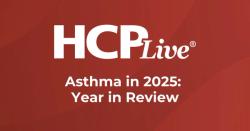
OR WAIT null SECS
Vivian P. Hernandez-Trujilo, MD, FAAP: The Role of Food Choice in Pediatric Allergy Prevention
Dr. Hernandez-Trujilo speaks of her personal history with food allergy, and what she recommends for families and expecting parents in the management of pediatric food allergy.
As a professional pediatric allergist, Vivian P. Hernandez-Trujillo, MD, FAAP, Director of Division of Allergy & Immunology, Nicklaus Children’s Hospital, knows the value of healthy, allergen-conscious food selection.
However, as a mother of 2 children with allergies, and as a patient with food allergy herself, Hernandez-Trujillo has additional insight into the importance of allergy prevention through specific nutritional methods.
In an interview with HCPLive, Hernandez-Trujillo offered insights into managing allergies in children, avoiding foods that could lead to an allergic reaction, and being prepared in case of accidental ingestions.
“I think until you've kind of lived it, it's a little bit hard to understand, because it does affect your quality of life (and) it affects every aspect of life,” Hernandez-Trujillo said. “And the reason I say that is; life is centered around meals and nutrition, and when you have to worry every time you eat, or if you've had a bad reaction, kids don't forget that, and adults don't either.”
Her work was detailed in “Essential Advice on Preventing Food Allergies”, a presentation that occurred at the American Academy of Pediatrics (AAP) 2021 Virtual National Conference & Exhibition.
Early preventative measures such as regular food restrictions during pregnancy lack consistent literature, though regular food options are often suggested for expecting mothers.
Additionally, Hernandez-Trujillo spoke of the conversations that are had between families and pediatricians regarding breastfeeding and formula recommendations, and how they could help in preventing food allergy.
Several changes in the world of pediatric allergy management were addressed during the interview, 1 of which being the “huge shift” in nutritional recommendations previously detailed in the “Big 8” major food allergens.
“If we go back 15 or 20 years, the recommendation was to hold off on some of the allergenic foods, and then as we've learned with time and different studies…we learned that actually earlier introduction, if possible, is better,” Hernandez-Trujillo said.
She recommended that families and new parents speak to their general pediatrician and health care providers about food choice recommendations for their children, as children with conditions such as severe eczema or egg allergy may benefit from different recommendations.
“The hope is that changing and introducing earlier may lead to some tolerance as opposed and then eventually prevent the food allergy from developing as opposed to waiting later in life when someone already may have developed the allergy,” she said. “I think that that is probably the most important take home message from the talk and the presentation.”
To hear more from Dr. Hernandez-Trujillo, as well as some of the insights presented at her AAP session, watch the video above.


